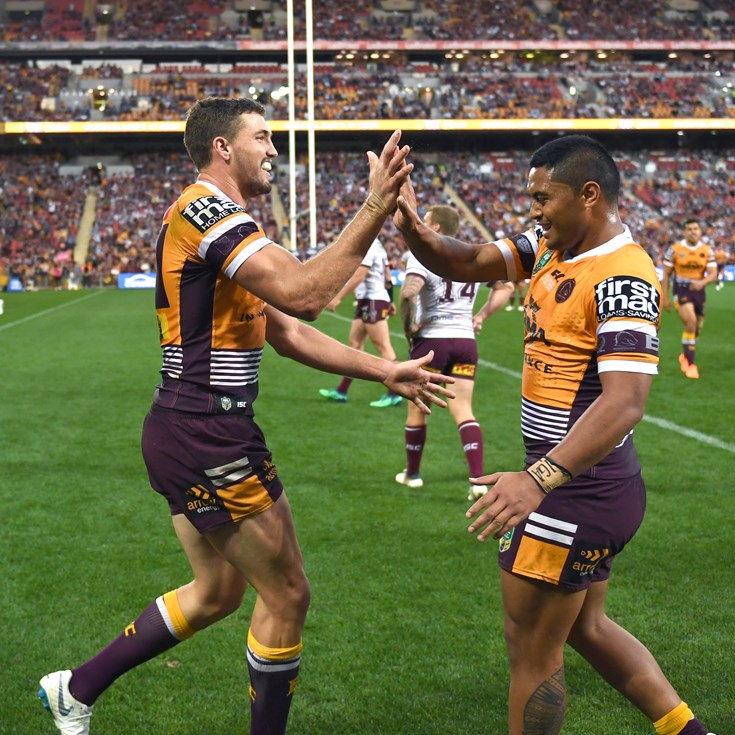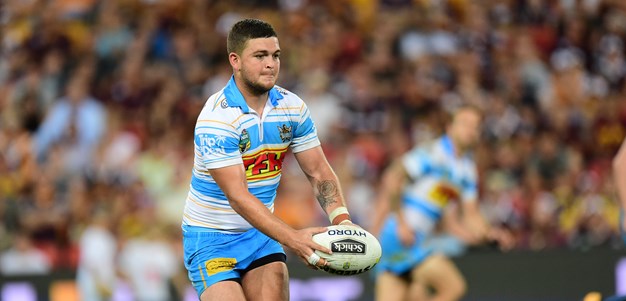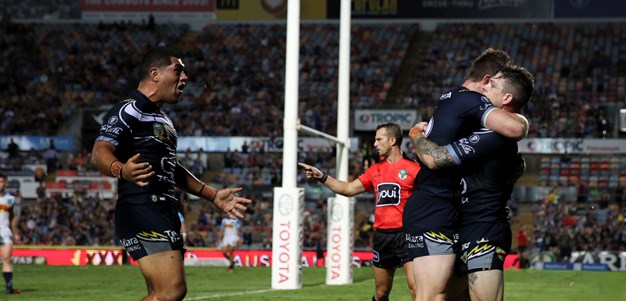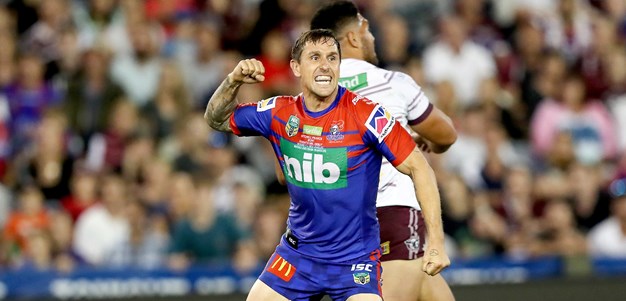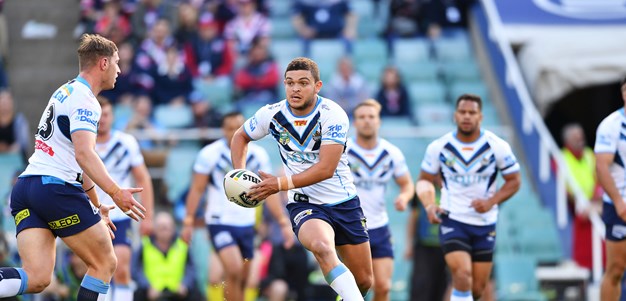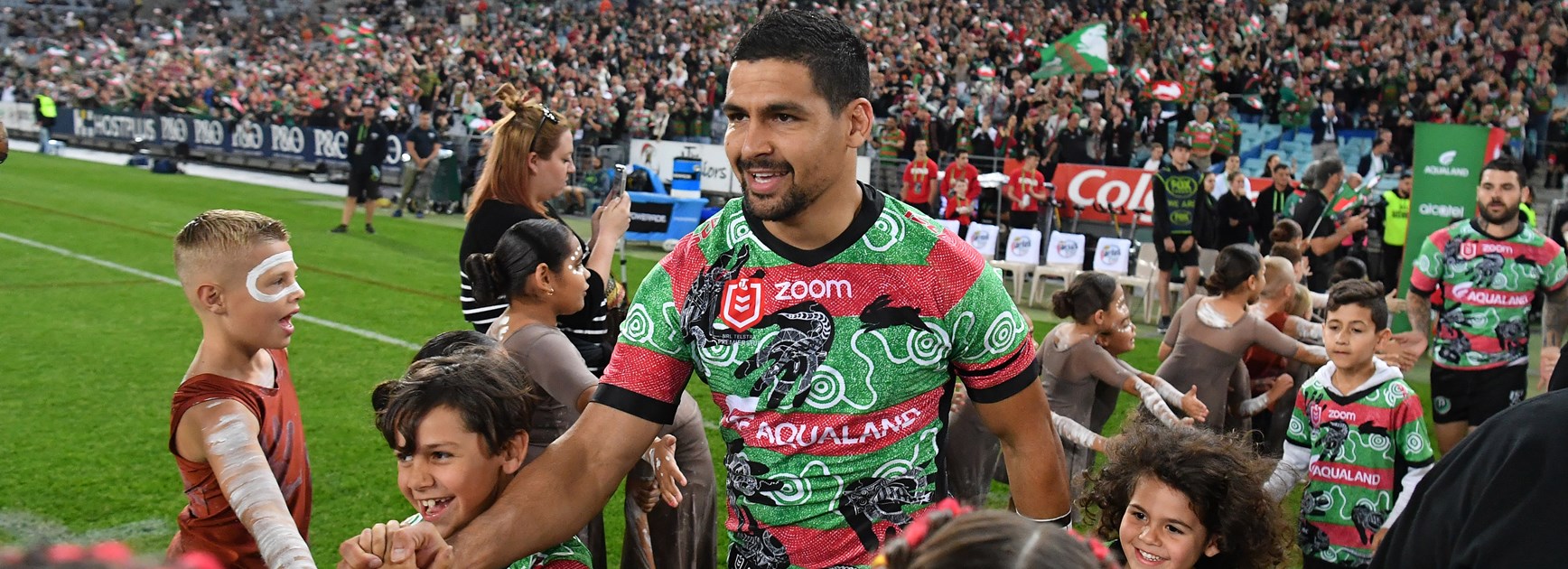
The NRL partnered with the Sydney Business Chamber to celebrate National Reconciliation Week and showcase the NRL's engagement with Aboriginal and Torres Strait Islander peoples. Australian Rugby League Indigenous Council members, Laurie Daley and Katrina Fanning, formed a panel to discuss ways in which the NRL work with communities and the ability of Rugby League to a make a difference in the lives of Aboriginal and Torres Strait Islander peoples. The NRL's Senior Manager Indigenous Strategy, Mark Deweerd, delivered this Vote of Thanks on behalf of the NRL to the Sydney Business Chamber:
Can I begin by acknowledging the traditional custodians of the land on which we have gathered, the Gadigal of the Eora Nation and pay my respects to their Elders, past and present. Can I also pay respects to my Elders that have guided me on my journey to where I am today.
I would like to thank the Sydney Business Chamber for the opportunity to once again partner in such an important week and to share the NRL’s journey and allow us to showcase something that we are extremely proud of - our relationship with Aboriginal and Torres Strait Islander peoples.
I grew up in the small country town of Walgett, about 700km north-west of Sydney. It is probably best known among the non-Aboriginal community as the home of Betty off Hey Dad, but among the Aboriginal community as a town with a strong rugby league history.
This is mostly due to Dragons legend Ricky Walford who was signed by Bob Fulton straight out of Walgett as a 17-year-old.
Like most Aboriginal communities, rugby league was the town’s lifeline. It allowed young kids like myself to dream of following in the footsteps of Ricky and later on Bubba Kennedy and George Rose.
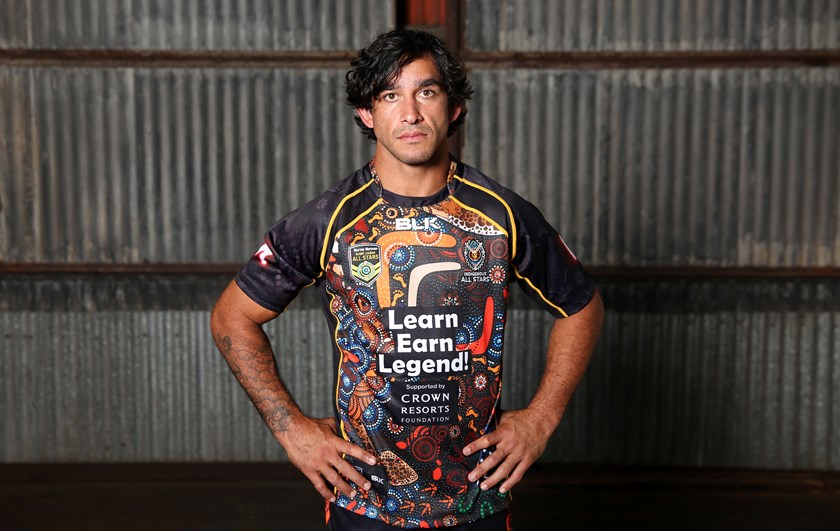
In my case, while it didn’t lead me to an NRL career on the field, it led me to one off the field.
They proved that through hard work and perseverance nothing can get in the way of achieving your dreams. This is what rugby league does, for me and so many other Aboriginal people.
When I arrived on the steps of the NRL in 2011 to commence employment, unbeknown to me there had not been any other Aboriginal people employed at the NRL. There had been in other league bodies, but not the national governing body.
When I started at the NRL all I heard from community members was that the NRL didn’t care about Aboriginal people or communities.
We were known to rip talented kids who had drive and passion out of communities and not give anything back in return – we were taking the cream of the crop leaving huge gaps. It was also said that Aboriginal people didn’t get a fair go – whether that was on the field, through representative football or in administration.
What I learnt very quickly though was that rugby league was up to the challenge. We had already counted Lionel Morgan as an Australian Kangaroo in 1960 before he was counted in our population.
We had appointed Arthur Beetson as our national captain in 1973 before our nation had passed legislation to make racial discrimination unlawful.
We were the first national sporting organisation to develop a reconciliation action plan in 2008 and have maintained this trend being the first to sign an Elevate RAP last year.
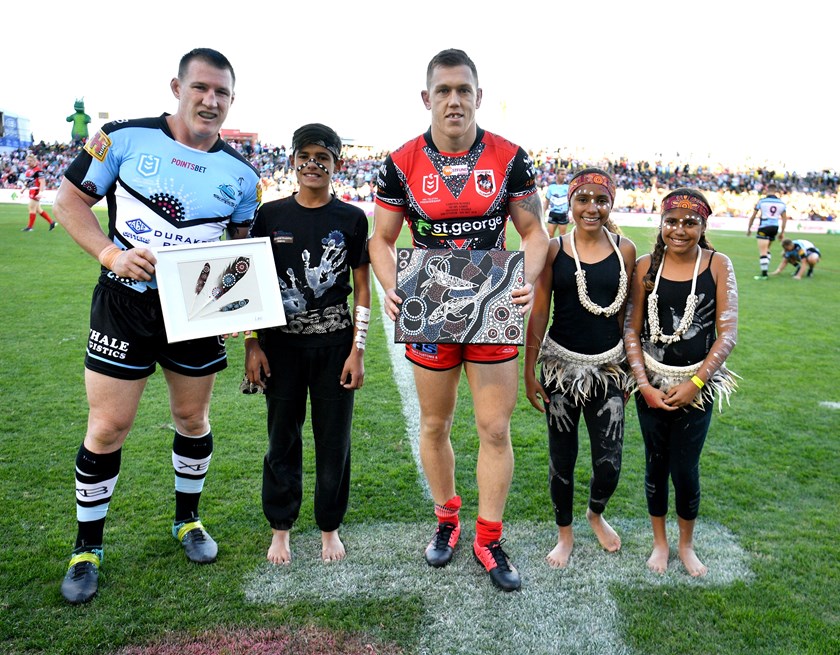
We were the first sport to have two Aboriginal captains lead their teams in the Grand Final in 2015 when Justin Hodges’ Broncos were defeated by Johnathan Thurston’s Cowboys.
On that same day the two captains of the curtain-raiser game were Aboriginal. The man of the match was won by JT.
Also that year Aboriginal players took out all the major awards at our night of nights, the Dally Ms:
- Johnathan Thurston won his fourth Dally M Medal.
- Jenni Sue-Hoepper won the inaugural Female Player of the Year award.
- Jack Bird was named Rookie of the Year.
- Ash Taylor was named our U20s Player of the Year.
None of this was a fluke, it was reward for the hard work that has been put in across the game.
This is why the National Reconciliation Week theme resonates so much with me – Grounded in Truth, Walking Together with Courage.
The game has been prepared to hold a mirror up to itself and look at how we give back, how we engage the community and how we make the community fall in love with the game again.
We set about employing more Aboriginal and Torres Strait Islander staff. As of last Friday, we now have 51 or 7.85 per cent of our workforce being Aboriginal and/or Torres Strait Islander. That’s 50 additional staff in eight years!
We now procure services from a range of Indigenous businesses, we ensure that 100 per cent of our staff have participated in a full-day face to face cultural awareness program and we run community programs that have nothing to do with playing rugby league, but give back to the community by guiding our youth on a pathway to success or dealing with social issues.
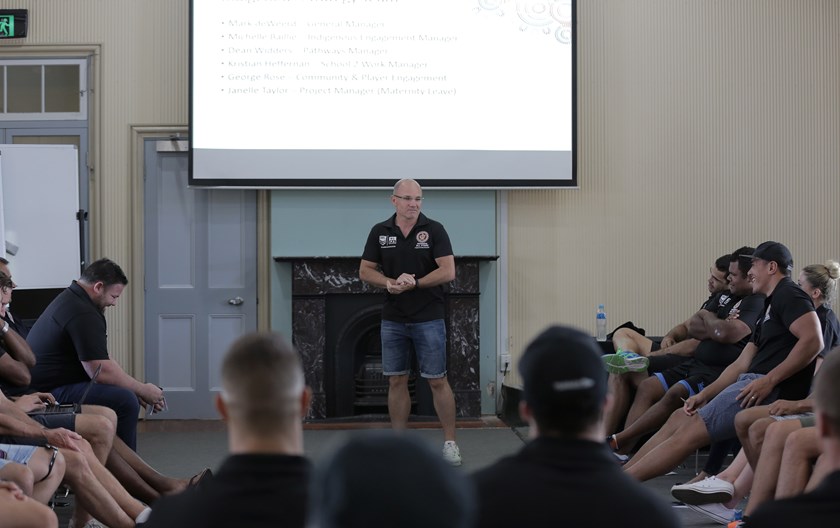
By this time next year for instance, our School to Work program will have supported over 2,000 Aboriginal and Torres Strait Islander male and female youth complete their schooling and transition into further studies or employment, with a success rate of over 90 per cent since it commenced in 2012.
We are also willing to put our reputation on the line for what we believe in and what the community sees as important:
- We set up a governing committee, the Australian Rugby League Indigenous Council, to provide strategic advice to our leadership team and our Board.
- In 2009 we joined Oxfam to deliver the Close the Gap campaign to raise awareness of health inequality and the gap in life expectancy.
- We pitted the best Aboriginal players against the best non-Aboriginal players in an All-Stars fixture (our colleagues in the US major sports think we are crazy as they could never do this).
- We encouraged the national anthem to be sung in language, we even played the Judith Durham version during Indigenous Round a couple of years ago to bring attention to the wording and the impact they have on our communities.
- We signed up to the RECOGNISE campaign, not to instruct our fans which way they should have voted if it went to a referendum, but to encourage them to learn more before voting.
- We partnered with the AFL in a series of images last week to show that we must stand together to deal with racism and other issues our communities face.
- And right now we are having discussions on our support for the Uluru Statement From the Heart
What we have done is walked together with our Indigenous communities on a journey and I encourage you all to do the same.
I’m sure you will agree after hearing from Laurie Daley and Katrina Fanning that we are in an enviable position to have such amazing ambassadors to speak on our behalf. But you must also find your own internal champions to be your voice. There’s no better place to start.
What is clear is if we all work together and walk together with our Indigenous communities we will all be able to make a demonstrable difference.
Thank you for attending and all the best.
